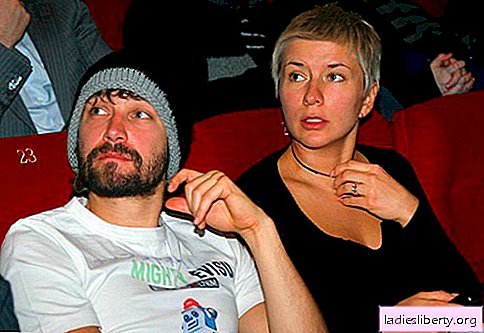
How to make friends? How to influence people? On Dale Carnegie’s birthday, Americans turn once again to his best-selling book on relationships, life and friendship. Oratory opened Dale Carnegie several ways to communicate more effectively, he later shared this with the world in his books, which are always popular in many countries. November 24, the birthday of the author and teacher, his books are exhibited in all bookstores of the country. Interesting and productive techniques are used by people all over the world, wanting to build relationships and communicate in society.
According to the Muslim religion on Ashur Day, Heaven, Earth, angels and the first man in the world - Adam, were created. The end of the world is also expected on this day. Adherents of Islam observe a day of mourning for the grandson of the prophet Muhammad Hussein, who died in terrible torture at the hands of Yazid, the son of Muawiyah. This death was the result of a dispute between relatives for power, Hussein refused to recognize Yazid as the rightful ruler. In memory of this event, the Muslims of Gujarat make a small copy of the tomb of Hussein and carry it around the city to the mournful melodies of the orchestra. The first tomb was built back in 1398 by the ruler Amir Timur. Celebrating this day, performances of acrobats and gymnasts are arranged for Muslims, and they stage the episodes of the past era. This time for Shiite Muslims coincides with the obligatory post in honor of the commemoration of the grandson of the prophet Muhammad Hussein ibn Ali, who was killed in the 7th century AD.
The memory of the Byzantine Orthodox monk Fedor Studit
Rev. Fyodor opposed lawlessness in the country, divorces, illegal marriages, contrary to the charters of the church. He expressed his protest to Emperor Constantine, for which he was thrown into prison, and later exiled to Solun. The subsequent ruler Irina freed Fedor and made him the ruler of the Studios Monastery. When another ruler overthrew Irina, Fedor was again persecuted. His whole life is upholding the ideals of the church, the sanctity of Orthodox icons and temples. The charter of the Studio Monastery, developed by Fedor, became the basis for all monasteries.
Fyodor himself is sometimes called Frost, "Fyodor Studit studies the earth" - this is how people relate to him. From this day in Russia they expected a drop in temperature and real frosts. Wise people try to spend that day at home near the stove, and observe folk signs. Dampness on this day portends a thaw, in the sky you can read whether there will be a crop of mushrooms and berries. Many stars predict a good harvest. To confirm the signs, tea with dried berries was brewed.
November 24, 2002 - 12-year-old schoolboy from Bryansk, Jan Nepomniachtchi, becomes the world chess champion
On the Greek island of Crete in November 2002, a youth chess tournament was held. As in previous competitions a month earlier, the winner was Jan Nepomniachtchi. This was already his third victory in the international championship, and the second team victory of Russian chess players in a similar championship. The young champion loves chess, but is not going to associate a profession with them and further life. He explains his victories with a love of chess, and not with a desire to be always the first. It should be noted that at his age champions Anatoly Karpov, Vladimir Kramnik, Garry Kasparov were successful.
November 24, 1927 - opening of the Operetta Theater in Moscow
The opening of the season began with the operetta "Joker Game". The predecessor of the theater was the "Operetta Eugenia Potopchina", a theater that was periodically closed by the Workers' Council. Only in 1927, it was decided to preserve bourgeois art and three Moscow operettas. The leader was Grigory Yaron. The theater immediately became successful, its repertoire included both classical works and operettas of modern composers: Dmitry Shostakovich, Isaac Dunaevsky, Yuri Milyutin. Today it is the Moscow Academic Theater "Moscow Operetta", famous in Europe.
November 24, 1905 - the uprising began on the cruiser "Ochakov" in Sevastopol
The ship "Ochakov" had the most revolutionary-minded crew. Sailors and port workers joined the Bolshevik rebellion. The Council of Workers 'and Soldiers' Deputies created on the ship called for Black Sea Fleet ships to join the uprising. The commander was appointed Lieutenant P.P. Schmidt. A number of demands were sent to the tsarist government: freedom of speech, democratic republic, 8-hour working day, improvement of the conditions of compulsory service. The uprising was crushed by troops, fire was opened on the ship. 2,000 rebel survivors arrested, leaders shot. The rebel cruiser, after being repaired in 1907, was renamed the Cahul.
November 24, 1874 Joseph Glidden patented barbed wire
A wire with spikes located on it is associated with security barriers, most often with military camps, zones. Few people know that her invention was subordinated exclusively to peaceful purposes. Such devices were used in fencing undeveloped land in America. They were indispensable in the development of farming and livestock. Stopping cattle with barbed wire has become much easier. The single and dibasic wire of the inventor Glidden became the impetus for the development of grazing. In 1900, its production exceeded 150 thousand tons. Later it began to be used in the first world war for the manufacture of barriers.
November 24, 1817 - a duel took place between Count Alexander Zavadovsky and Vasily Sheremetev because of Avdotya Istomina
The famous ballerina Avdotya Istomina quarreled with her lover Sheremetyev and, at the invitation of Griboedov, spent two days in Zavadovsky’s house. When the count found out about this, he challenged his opponent to a duel, in which he was mortally wounded. It is known that during the duel, the seconds quarreled (Griboedov and Yakubovich), a year later another duel took place in Georgia, and Griboedov was injured with a finger. By this wound, he was identified after the murder in the Caucasus.
Benedict Spinoza (1632 - 1677 years), the Dutch materialist philosopher
Spinoza was originally an Orthodox Jew. In conflict with the city authorities, he was excommunicated for heretical views and evicted from the city. He was engaged in the manufacture of glasses and this earned his living. The beginning of the New Age era influenced the formation of his views. He was fond of anthropology, Neoplatonic scholastic philosophy, studied the relationship of people in society and around the world. The ideas expressed by him aroused great interest over several centuries; he is called the “Purest Sage."
Alexander Vasilievich Suvorov (1729 - 1800 years), the great Russian commander
A nobleman from a family of hereditary military men who received an excellent rigorous education, Suvorov knew 7 languages and at the age of 17 he entered the active service. In the victorious age of Empress Catherine II, he played a huge role in the turning point of the war with the Turkish troops. A bright victory in the assault on the impregnable fortress of Ishmael forever inscribed his name in Russian history as a brilliant commander. In the war against the Polish Confederates, he commanded the Russian troops and achieved surrender of the enemy. In 1796, he wrote the book Science of Winning. After the death of Catherine, he was in exile, but was returned and made his famous passage through the Alps. Suvorov became the first Generalissimo of the Russian army in history.
Grace Darling (1815 - 1842), the national heroine of Britain
Grace was the daughter of a lighthouse keeper, and during a storm she noticed a ship floating on a lighthouse. She saved 60 people, on a small boat, sailing to the crash site several times. The girl became a national heroine. Patriotic verses were dedicated to her, artists considered it an honor to paint a portrait. The girl was awarded a prize and a medal of the Royal Society. Today, the lighthouse has a national museum.
Nemanja Emir Kusturica (1954), director from Bosnia
The cult director has directed a large number of films, many of which have received awards from festivals and competitions, including the Golden Palm Branch and the FIPRESCI Prize at the Cannes Film Festival. His work is nominated for an Oscar and Golden Globe. His films: “Dad on a business trip”, “Black cat, white cat”, “Widow from the island of San Pierre”, “The Good Thief” and many others.
Michel de Clerk (1884 - 1923), famous architect of the Amsterdam School
Young de Klerk was called the incomprehensible genius who manages the compositions of a modern, vibrant city. His work was performed in a neo-Gothic style with elements of Renaissance architecture. De Klerk has developed many building projects in Amsterdam. These are often rounded, organic forms, with many turrets and spiers, sculptural images and original windows in the form of stairs.
Dale Carnegie (1888 - 1955), author of famous bestsellers on improving interpersonal relationships
Carnegie is a famous author who has written best-selling books on developing communication skills and oratory. He became a real teacher of effective communication and public speaking, created the "Institute of Effective Oratory and Human Relations", which has many branches around the world.
On this day, Victor, Stepan, Fedor, Maxim celebrate their birthday.











